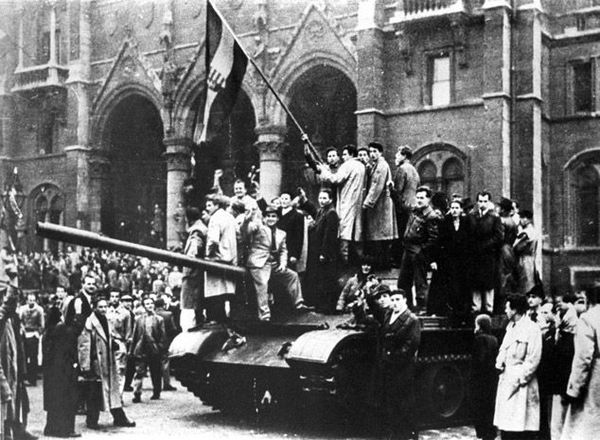The Hungarian Revolution of 1956 is, so to speak, a “forgotten revolution.” A revolution whose memory has been “erased,” banished. And it is understandable from a certain point of view. It was an inconvenient revolution for both capitalist powers in the West and Stalinist bureaucracies in the East. And it remains inconvenient for capitalists to this day.
The Hungarian Revolution’s social and political content was extremely subversive: a working-class revolution in a so-called “socialist” country against the local Stalinist bureaucracy that did not turn towards Western powers or the former local ruling classes to restore capitalism. On the contrary, the insurgents of the Hungarian Revolution were fighting to build true socialism, liberated from the bureaucracy of the Soviet Union, in which the workers, peasants, and oppressed masses would be the true masters of their destiny and power.
The Hungarian Revolution of 1956 is not only a “forgotten revolution,” but also one of the greatest workers’ revolution of the 20th century. Over the course of a few days, councils of workers and students formed in neighborhoods all over the country. The revolutionary wave dealt a hard blow to Hungarian totalitarianism. The spontaneous councils that sprang up in the factories, villages, and lower-class neighborhoods reorganized economic, political, and social life. These councils declared freedom of the press and allowed for the distribution of all sorts of propaganda, except concerning the former fascist dictator Horthy. They distributed arms to the general population and a major part of the police and army joined the revolutionary cause.
These new democratic institutions were the very demonstration that an alternative political regime to Stalinist bureaucratic terror was possible, as they not only conserved the foundations of the nationalized economy, but also they strengthened it through reforms.
The Hungarian Revolution demonstrated that the restoration of capitalism and private property, which came a few decades later, was not the only possibility opposite the policies of the bureaucracy in power; a revolutionary left-wing alternative did indeed exist against the Stalinist falsification of socialism. Quite the reverse, crushing the Hungarian Revolution by Stalinism with fire and sword in 1956, and the subsequent revolutions in Czechoslovakia in 1968 and in Poland in 1980, created the very conditions for Stalinism’s self-implosion, the fall of the Soviet Union between 1989 and 1991, and the restoration of capitalism. This relatively pacific process involved an economic and social counterrevolution on a historic scale for which the region’s masses are still paying the price.
The importance of the Hungarian Revolution lies in its very ability to contradict the rhetoric of “anti-totalitarian” intellectuals in the aftermath of May 1968, these “renegade gauchistes” who affirmed what they believed to be a continuity between revolutionary Marxism and Stalinist totalitarianism. For eighteen days the Hungarian workers demonstrated that socialism and liberty could go very well together. Their very acts openly refuted the intellectual charlatans and the so-called “totalitarian left,” which had caused so much harm to Marxism by marginalizing it and undermining the revolutionary traditions of the 1970s. Reflecting recent French political life, this rhetoric clearly aimed to impose more moderate, liberal and postmodern solutions.
This is why on the anniversary of the Hungarian Revolution, it is important to remember and take lessons from it.












